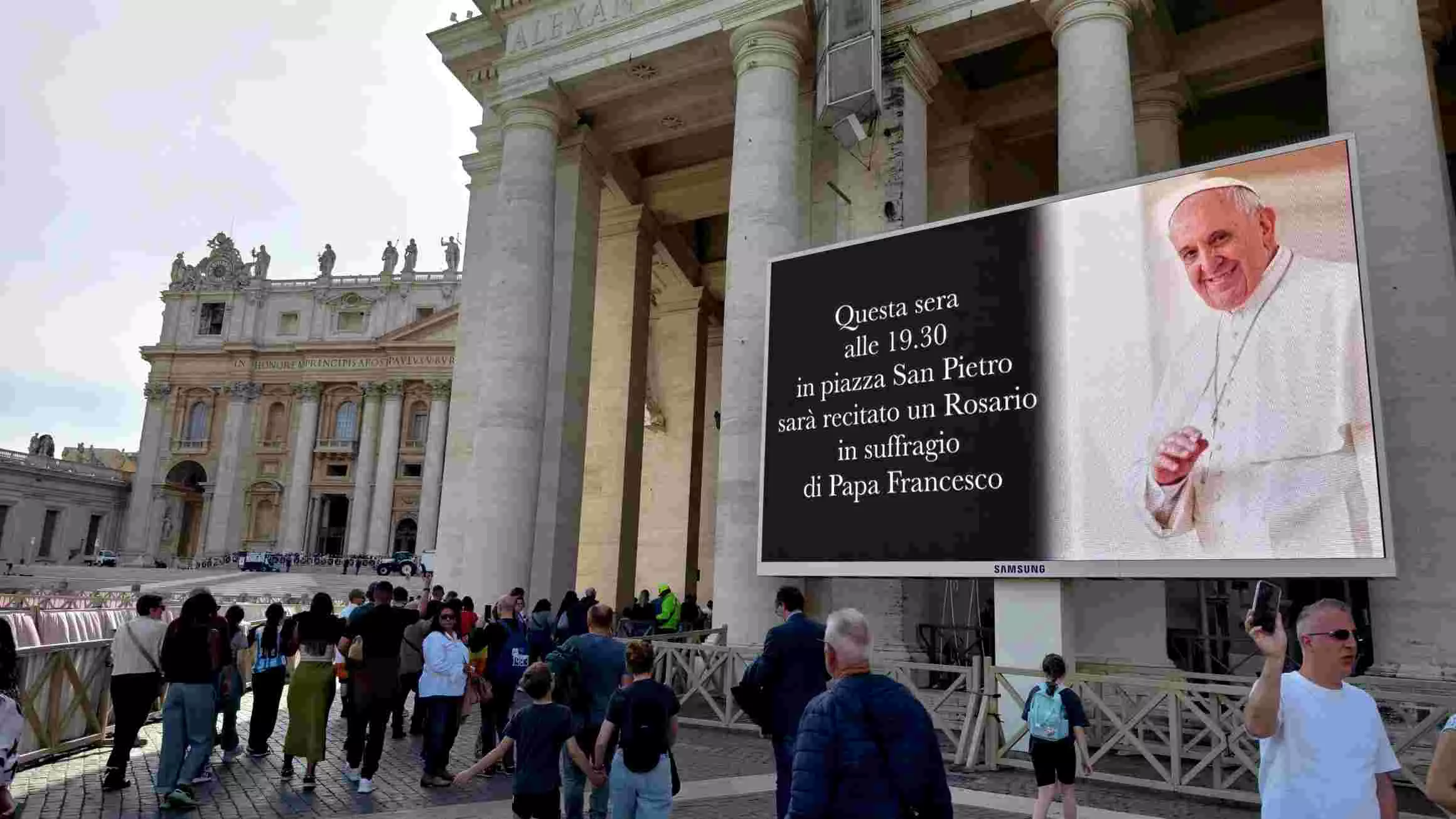
Who will be the next Pope? Here are a few likely candidates
As 137 cardinals go into a huddle to elect a new pope, speculation is rife as to who will lead the Church next; the race for papacy marked by intrigue is on

As the world’s Catholic community grieve, attention turns to the College of Cardinals, who will convene in a secretive conclave to choose Pope Francis’ successor.
With 252 cardinals, 137 of whom are under 80 years and eligible to vote as of April 21, 2025, the race for the papacy is underway, marked by intrigue and speculation about who will lead the Church forward.
Four of these cardinals are from India.
The Conclave
The conclave, expected to begin within 15 to 20 days after funeral rites, will take place in the Sistine Chapel, where cardinals will vote under oaths of secrecy, using paper ballots until a candidate secures a two-thirds majority.
The process is steeped in tradition, with white smoke signalling a new pope’s election. Pope Francis, the first Latin American pontiff had left behind a progressive legacy, which emphasised inclusivity, social justice, and interfaith dialogue. His death has sparked discussions about whether the next pope will continue his vision or shift towards a more conservative stance, reflecting the Church’s ideological divides.
Potential contenders
Several cardinals have emerged as papabile – potential contenders – each with distinct backgrounds and theological leanings.
Also read: Pope Francis was source of controversy, spiritual guidance in his Argentine homeland
Cardinal Luis Antonio Tagle, 67, from the Philippines, is a prominent figure often called the “Asian Francis”.
As Pro-Prefect for the Congregation for the Evangelization of Peoples, Tagle shares Francis’ missionary spirit and focus on the poor, while advocating for inclusivity toward LGBTQ+ individuals, divorced Catholics, and unmarried mothers. His charisma and Left-leaning views make him a strong candidate, though his lack of fluency in Italian could pose challenges for a role requiring familiarity with Roman dynamics.
Cardinal Matteo Zuppi, 69, the Archbishop of Bologna and president of the Italian bishops’ conference, is another progressive contender. Known as a “street priest”, Zuppi has mediated peace efforts, including in Mozambique’s civil war and Ukraine-Russia conflicts. His inclusive stance on same-sex couples and interfaith dialogue aligns with Francis’ priorities, positioning him as a candidate who could bridge traditional and modern elements of the Church.
Experts like Massimo Faggioli of Villanova University describe Zuppi as ideologically balanced, blending John Paul II’s social engagement with Francis’ compassion.
Cardinal Pietro Parolin, 70, the Vatican’s Secretary of State, is a diplomatic heavyweight with a reputation for pragmatism. A proponent of social justice and interfaith dialogue, Parolin’s disdain for clericalism mirrors Francis’ views. His extensive experience in Vatican administration and global affairs makes him a formidable candidate, though some see him as too entrenched in the Curia’s bureaucracy.
Also read: Pope Francis is dead; what next for Vatican, and the Catholic Church?
His election could signal continuity with Francis’ reforms.
Conservative candidates
On the conservative side, Cardinal Robert Sarah, 79, from Guinea, is a polarizing figure. A Vatican veteran since 2001, Sarah has criticised ecumenical outreach and progressive proposals, such as allowing Protestants to receive the Eucharist. While his experience and traditionalist stance appeal to some, his age and a past missed opportunity in 2013 may diminish his chances.
Cardinal Péter Erdő, 72, of Hungary, is a conservative with progressive ties, making him a potential compromise candidate. As Archbishop of Budapest, Erdő has built bridges with Francis’ camp while maintaining traditionalist credentials. However, his limited Italian fluency can hinder his candidacy in a role tied to Rome’s power structures.
A progressive successor?
Cardinal Jean-Claude Hollerich, 66, of Luxembourg, and Cardinal Mario Aveline, 56, of France, are younger contenders. Hollerich’s progressive views and Aveline’s rapid rise under Francis highlight the growing influence of non-Italian cardinals. Asian cardinals, now nearly a quarter of electors, could push for representation, with Tagle as a frontrunner.
The conclave’s outcome hinges on balancing Francis’ legacy with the Church’s global shifts. Europe still dominates with most voting cardinals, but the Church’s center of gravity is moving toward Asia and Africa, where Catholicism is growing. Francis appointed 108 of the 137 electors, increasing the likelihood of a progressive successor, though not guaranteeing it.
As cardinals met on April 22, 2025, to plan Francis’ funeral, expected to draw global leaders, maneuvering for the papacy has already begun. The funeral, followed by a nine-day Novendiales mourning period, will precede the conclave.
Also read: Pope Francis obit: The people’s pontiff who reimagined the Catholic conscience
Speculation is rife, but the conclave’s secrecy ensures unpredictability.
Posts on X reflect public interest, with some claiming early contender discussions, though such claims lack verification.
The next pope will inherit a Church navigating modernisation, cultural shifts, and global challenges. Whether Tagle, Zuppi, Parolin, or an unexpected candidate emerges, the decision is all set to shape Catholicism’s future.

